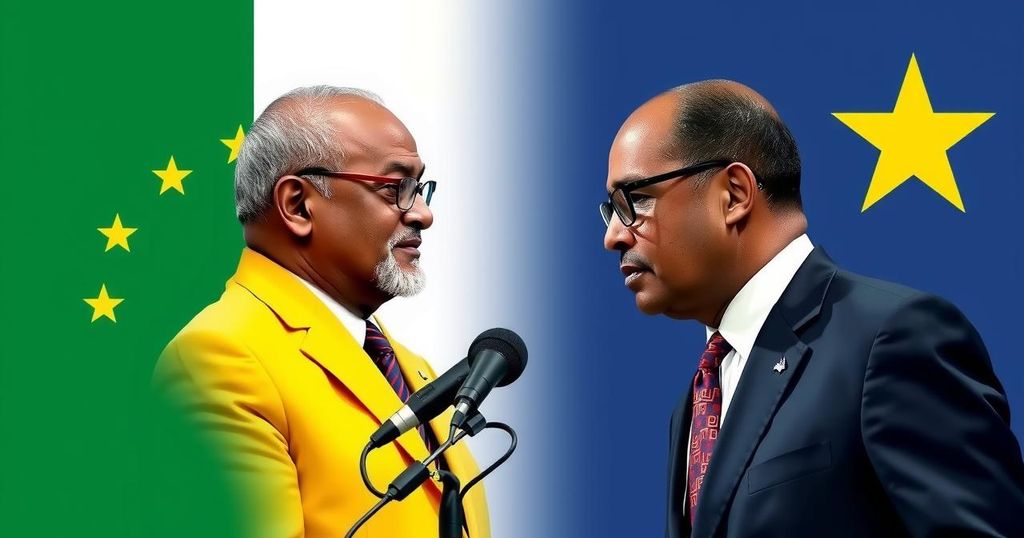Turkiye is expanding its influence in Africa with its non-colonial history distinguishing it from European powers. A ministerial meeting in Djibouti reflects this growing partnership, particularly in mediating the Ethiopia-Somalia dispute. Ankara’s investments in Somalia and agreements for resource exploration underscore its commitment, alongside military cooperation across the continent. Trade relations are on track to exceed $40 billion in 2022.
In recent years, Turkiye has been establishing itself as a key partner in Africa, leveraging its defense initiatives and extensive trade networks to expand its influence on the continent. A diplomatic source in Ankara highlighted that Turkiye’s appeal stems from its distinct non-colonial history, setting it apart from European powers with colonial legacies. The upcoming ministerial meeting scheduled for November 2 and 3 in Djibouti, attended byTurkiye’s Foreign Minister Hakan Fidan along with representatives from 14 African nations, underscores this growing connection. This platform, initiated in 2008, emphasizes Turkiye’s commitment to fostering relations with Africa. The source further noted, “Turkiye’s biggest advantage is its non-colonial past. When anti-imperialist leaders are looking for new partners, they think first and foremost of us.” This sentiment reflects the country’s strategic role as a mediator in the ongoing dispute between Ethiopia and Somalia over maritime access, where Turkiye is seen as a neutral party capable of facilitating dialogue amidst regional tensions. Ankara has cultivated a substantial presence in Somalia over the past two decades, engaging in various sectors including agriculture and infrastructure development, evidenced by projects such as the construction of the airport in Mogadishu and the establishment of military training centers. Moreover, recent developments include the Turkish vessel Oruc Reis embarking on oil and gas exploration in Somali waters, following agreements that permit drilling in three designated areas. Turkiye’s endeavors extend beyond Somalia to Niger, where similar agreements for natural resource exploration were signed recently. The Turkish mining company MTA currently operates three gold mines in the Sahel region, which is also rich in uranium, signaling a diversification of economic interests in Africa. According to the Stockholm International Peace Research Institute, Turkiye has emerged as the fourth largest arms supplier to sub-Saharan Africa, establishing military cooperation with over 25 nations. The Turkish government’s firm stance against sanctions targeting countries such as Niger, Burkina Faso, and Mali has bolstered its bilateral relations. Furthermore, Turkish diplomatic efforts emphasize the importance of economic development to address security challenges prevalent in West Africa. Senegalese President Bassirou Diomaye Faye pointed out the need for stronger defense cooperation during a recent meeting with Turkish President Recep Tayyip Erdogan. Turkish construction firms have also played a pivotal role in infrastructure projects, significantly contributing to economic growth, such as the ambitious $6.5 billion railway network initiative in Tanzania. Trade relations are thriving, with projections indicating that bilateral trade between Turkiye and Africa may surpass $40 billion in 2022. Complementing these efforts, Turkish Airlines has expanded its operations, currently serving about 50 destinations across the continent, thereby enhancing connectivity and support for economic interactions.
The article discusses Turkiye’s strategic outreach to African nations, driven by a shared history that avoids colonialism. This stance has facilitated Turkiye’s role as a mediator in regional conflicts, such as the maritime dispute between Ethiopia and Somalia. Infrastructural investments, military cooperation, and burgeoning trade relationships further highlight Turkiye’s comprehensive approach to fostering ties within the African continent.
In summary, Turkiye’s proactive engagement in Africa is marked by its non-colonial advantages, strategic diplomatic initiatives, and significant investments across various sectors. By establishing itself as a mediator and a key economic partner, Turkiye is enhancing its influence in the region while promoting collaboration and development. The anticipated growth in bilateral trade and military cooperation positions Turkiye as a formidable ally for African nations in addressing both economic and security challenges.
Original Source: www.arabnews.com






